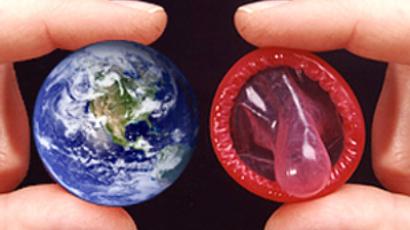UN is wrong body to tackle climate change

There was never going to be a consensus on climate change. How can you reach a consensus on something that is changing?
It’s hard enough for politicians to understand current climate issues, let alone adapt their policy to future changes. Expectations for a quick agreement to cut pollution were set too high.
The analysis of climate change is a hundred times more complex than the banking crisis, and politicians don’t have a clue how that happened.
Climate change is as much about economics as physics. It’s also about geology, geography, botany, zoology, forestry and marine biology. Reducing the evolution of the planet to a series of dots, based on selected and manipulated data from meteorological centres, and calling it climate science, is most definitely hogwash.
Climate science is too narrow
If the Intergovernmental Panel on Climate Change supported true climate science, it would have to come to grips with economics. The UN would learn about the dangers of zero sum economics, the law of unintended consequences, and the salutary errors of Malthus.
The UN and the World Bank are the wrong organisations to be put in charge of implementing pollution controls.
The developing countries are deeply suspicious of the UN and the World Bank which, like the International Monetary Fund, are seen as tools of the rich countries.
They have a long history of implementing economic policies that harm poor countries, so how on earth can they be trusted to balance the need for development with pollution limits?
Corruption is the enemy
Creating a virtual market in “permission to pollute” credits that actually reflects reality and the needs of industry, consumers and countries is well beyond the ability of the UN.
Carbon trading is already corrupt. Why would you put it in the hands of the UN, which ran the Oil For Food Scandal with Saddam Hussain’s Iraq. Oil that was meant to be sold to buy food and medicines for the Iraqi people was, instead, given away as bribes, much of it to UN officials, so that the UN would ignore its own ban on Iraqi oil sales.
By the way, a fascinating coincidence: Sir Maurice Strong was the main mover behind the UN's involvement in fighting climate change.
He was Sec Gen of the UN 1972 conference on the human environment, first director of the UN's environment programme, and organiser of the UN's Earth Summit in Rio in 1992 that set the stage for the Kyoto agreement.
He received, countersigned and cashed a cheque for $1 Mln from Saddam Hussein's government in 1997 during the Iraq Oil For Food scandal. He resigned from the UN and went to live in China.
However, he still sits on the board of the Chicago Climate Exchange that buys and sells carbon credits, or permission to pollute. He also showed his face at last week’s summit in Copenhagen.
Wooly thinking breeds corruption, and corruption is as dangerous as climate change.
Media ignores violence
Violence flared outside the conference venue in Copenhagen, as Danish police used thuggish tactics borrowed most recently from the G20 summit in London. More than 1,500 people were arrested while some delegates were pushed and shoved by police as they tried to enter the conference building.
Most of the world’s media ignored the violence in Copenhagen, unable to explain it. Antiglobalists fighting capitalists is one thing, but in Copenhagen police clashed with environmentalists supporting the conference.
The consensus on climate change, announced in the western media, turned out to be a chimera. Measures to tackle pollution were still being fiercely debated – even by those in the same camp.
It was no surprise that the conference failed to reach agreement.
So those who hope for clean government and climate measures which are truly in the interests of the inhabitants of this globe can be pleased that the delegates to Copenhagen were effectively sent home to think again and come up with more sensible proposals next time.
Zero-sum economics: Assuming that one person’s gain is another person’s loss. Assuming that a reduction in pollution in one part of the world can be offset, kilo for kilo, by an increase in pollution elsewhere. The law of unintended consequences: The dangerous risk that policy can create unexpected incentives. In physics, every action has an equal and opposite reaction, but you cannot always be sure what it will be. Thus, the deliberate introduction of the myxomatosis virus in the UK to poison rabbits and reduce their population led to uncontrolled growth of grass and other plants that rabbits used to eat. This plentiful food led, some years later, to a rebound in the rabbit population. Thomas Malthus. He argued that population growth would lead to "epidemics, pestilence and plague .. in a terrific array”. However, he failed to see that farming was already moving beyond the peasant/subsistence phase. Rising industrial productivity and intensive farming did, indeed, feed many, many more people. Malthus’ warnings on population are still popular, as is his apocalyptic writing style. His heirs also make mistakes, failing to notice that as people become richer they tend to have fewer children. Fertility is falling, not just in the industrial world but in much of Asia. They also assume that the developing world will copy the same industries as the west, in an identical pattern of development. This ignores the very advances in energy technology that environmentalists espouse.
Mark Gay, RT













